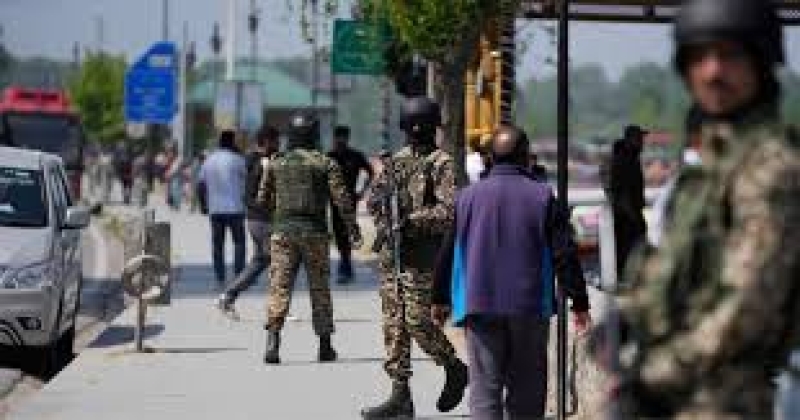- UNRWA Situation Report on Crisis in Gaza & Occupied West Bank |
- Intimidation or bloodshed cannot halt Bangladesh’s march to democracy |
- Khaleda Zia integral to an important chapter in BD history: Yunus |
- Enthusiasm marks Victory Day celebrations across Bangladesh |
- Dhaka-Delhi ties deep; to be shaped by trust, dignity, mutual respect |
India Suspends Water Treaty After Kashmir Attack, Blames Pakistan

Tensions between India and Pakistan soared on Thursday after a deadly militant attack in Kashmir left 26 dead, prompting New Delhi to accuse Islamabad of orchestrating the assault and to suspend the decades-old Indus Waters Treaty.
The attack took place in the scenic town of Pahalgam, a popular destination in Indian-administered Kashmir, and marked one of the deadliest strikes in the region in recent years. The violence shattered a fragile calm and triggered nationwide outrage, with Prime Minister Narendra Modi’s government vowing decisive retaliation.
In a swift diplomatic escalation, India expelled several Pakistani diplomats and announced the revocation of all visas issued to Pakistani nationals, effective Sunday. The foreign ministry also advised Indian citizens to avoid travel to Pakistan.
India’s Foreign Secretary Vikram Misri stated that Indian diplomats would also return home, with both sides agreeing to reduce diplomatic staff from 55 to 30 by May 1. Additionally, the only operational land border crossing between the two nations is set to close.
Addressing a rally, Prime Minister Modi pledged a relentless pursuit of the perpetrators: “India will identify, track, and punish every terrorist, their handlers, and their backers. We will pursue them to the ends of the earth.”
Later in the day, Modi was scheduled to chair an all-party meeting to brief opposition leaders on the government’s response and build political consensus.
Pakistan swiftly rejected the accusations, calling India’s moves “rash and baseless.” Prime Minister Shehbaz Sharif convened an emergency meeting of the National Security Committee, where top civil and military leaders reviewed strategic and diplomatic responses.
Radio Pakistan reported that the committee was especially focused on New Delhi’s decision to suspend the Indus Waters Treaty (IWT), a landmark water-sharing agreement brokered by the World Bank in 1960. The treaty had endured multiple wars and skirmishes, symbolizing rare cooperation between the two nuclear-armed rivals.
Under the IWT, the eastern rivers — Ravi, Beas, and Sutlej — were allocated to India, while Pakistan received rights to the western rivers — Indus, Jhelum, and Chenab. The treaty allowed limited Indian use of western waters for non-consumptive purposes, such as hydropower.
India’s decision to suspend the treaty marks a significant departure from past restraint, raising fears of further escalation. “India has taken irresponsible steps and leveled unfounded allegations,” said Pakistan’s Foreign Minister Ishaq Dar in an interview with Dunya News. “Any kinetic step by India will be met with a tit-for-tat response.”
Dar’s warning recalled the volatile atmosphere of February 2019, when a deadly suicide bombing in Kashmir nearly led to full-scale conflict between the two nations.
Tensions in Kashmir have remained high since August 2019, when India revoked the region’s special constitutional status, placing it under direct federal control — a move condemned by Pakistan. A 2021 ceasefire agreement had brought relative calm to the Line of Control, but Thursday’s attack has renewed fears of unrest.
Locals in Pahalgam expressed shock, as militants rarely target tourists. In response, schools, markets, and businesses were shut down, heightening concerns over the economic impact in a region heavily dependent on tourism.
Meanwhile, mass protests erupted in Pakistani cities including Lahore and Islamabad, with demonstrators denouncing India’s actions and demanding a strong government response.
As both sides dig in, observers warn that the suspension of the Indus Waters Treaty could mark a dangerous turning point in South Asia’s already fragile peace.

